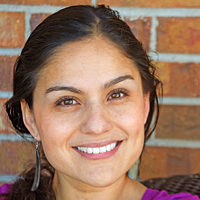 Discharging From NICU Online Course(s) & Continuing Education
Discharging From NICU Online Course(s) & Continuing Education
Access the latest clinical skills and research for Discharging From NICU for NEONATOLOGY professional training. These Discharging From NICU online courses provide practice-changing skills and valuable perspectives from leading global experts. This Discharging From NICU education has been accredited for a variety of CEUs / CERPs and can be accessed on-demand, at your own pace.
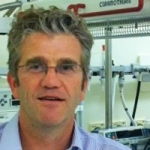
Feeding Preterm Babies after Hospital Discharge: Breast-milk, Fortifier, Supplements and Complementary Foods

Dr Embleton has worked in neonatal medicine for the past 25 years, completing clinical training and a research doctorate in neonatal nutrition in the UK, and a neonatal fellowship in Vancouver, Canada. He has worked as a Consultant Neonatal Pediatrician in Newcastle, UK since 2002, one of the largest UK neonatal units, caring for sick preterm and term born neonates. He leads a broad portfolio of research focused on nutrition and gut health in preterm infants. Areas of work include determining patterns of early gut microbial colonization, and how these may predict the development of necrotizing enterocolitis (NEC) and sepsis. He is a project team member of large neonatal feeding trials recruiting >5000 infants in the UK, as well as coordinating mechanistic studies using microbiomic and metabolomic analyses. He chairs the multi-disciplinary UK Neonatal Nutrition Network (N3) and is a member of the Committee of Nutrition for ESPGHAN.
Topic: Probiotics in Preterm Infants - [View Abstract]
Survival in preterm infants has increased over the last few years, and this has been accompanied by an increasing focus on the importance of nutrition and the effects of preterm birth on later outcomes. Providing nutrition to sick preterm infants in the NICU is complex, and almost all preterm infants are discharged with growth outcomes (weight and length) considerably below their birth centiles. This is important because data show an association between poorer growth and nutritional status in the NICU, and worse longterm neurodevelopmental outcomes. Whilst greater efforts are required to improve nutritional status prior to discharge, the post-discharge setting represents a time period when brain growth is also rapid, and where the potential exists to improve outcome through nutritional interventions. However, the potential benefits of improved brain outcomes need to be considered alongside the possibility of metablic harm induced by excessively rapid growth which may increase risks of obesity and later chronic disease. This talk will consider the continued importance of breast milk after discharge, the potential role of fortifiers and supplements in meeting nutrient requirements, and issues around the timing of introduction of complementary foods.

View Details / Enroll
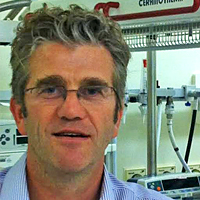
View Details / Enroll


Paulina is the mother of three multicultural Latino children and Project Director for Lifespan Local. Paulina earned her BS in Psychology from the Pennsylvania State University, a MS in Organizational leadership from the University of Denver and is completing her PhD in Health and Behavioral Sciences at the University of Colorado - Denver. Paulina has over 18 years of experience working with families with young children. As a Maternal Child Health specialist for Jefferson County Public Health, she developed a NICU follow-up home visitation program and the pediatric emergency preparedness plan, co-founded and coordinated the Conectando Network (former Adelante Jeffco), established community navigation and lactation support groups focused on the Latino Spanish speaking community, and lead other initiatives to support leadership and partnerships among communities and organizations. During the COVID-19 pandemic, she managed the new program Whole Community Inclusion to ensure the pandemic response and recovery implementation included health equity practices that recognize the needs and the strengths of priority populations in the county. Her areas of current work include promoting perinatal and infant mental health along the continuum of care; building community capacity to navigate health and education systems; facilitating organizational change to embrace linguistic and culturally responsive practices; and establishing community-placed participatory programs to strengthen communities. She likes to be with people, learn from and with others, and connect passions for meaningful work.
Topic: From the NICU to the home: mother’s experiences - [View Abstract]
Topic: Leadership Skills in Lactation: Make Extraordinary Things Happen - [View Abstract]
Topic: Liderazgo en Lactancia - Para Alcanzar Metas Extraordinarias - [View Abstract]
Topic: Nursing A Preemie, Perspectives For Lactation Supporters and Professionals - [View Abstract]
Lactation consultants would benefit from expanding their understanding of the impact of the NICU stay on the family; moreover, they would benefit from identifying the essential role they could play in assisting families to accomplish a positive, healthy, and smooth transition home.
Despite continuing efforts to reduce prematurely worldwide, a significant number of infants are born too early or in a fragile medical condition. Many of these infants experience a lengthy stay at the NICU. Lactation support varies across facilities, but families, especially mothers, develop strong connections with their lactation consultant. As one of their most consistent providers in the NICU, the lactation consultant has the opportunity to recognize families’ need for continuing support after discharge and strategies to protect the breastfeeding relationship, attachment, and mental health in the long term.

View Details / Enroll
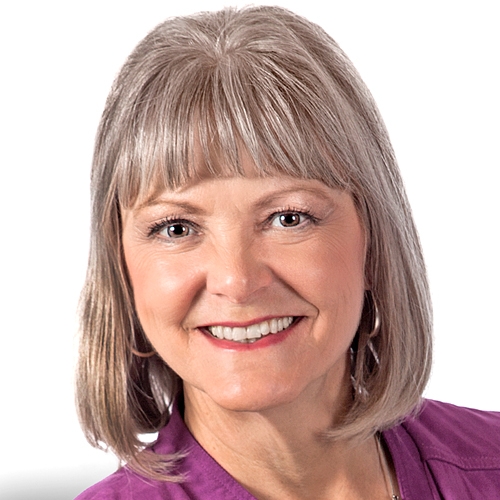

Karen has worn a number of hats in her nursing career but always comes back to her passion for premature babies. Her background includes NICU nurse, transport nurse and NICU educator, rural nursing, staff development, pediatrics, pediatric intensive care, and community health. For over 20 years Karen has lead Calgary’s specialized “Neonatal Transition Team”, which she will talk about today. Karen has presented locally, nationally, and internationally and has also been co-investigator in several research and quality improvement studies examining outcomes for very low birth weight infants. For nearly 30 years, Karen taught, wrote instructional material, and produced on-line courses for nurses to earn a certificate in neonatal nursing through Mount Royal University. Karen is a past-president of the Canadian Association of Neonatal Nurses and served on this national board for 12 years, and on the international board of the Council for International Neonatal Nurses for 3 years. In 2019, Along with co-author, Tammy Sherrow, Karen published the book “Preemie Care: A guide to navigating the first year with your premature baby”.
Topic: “Zooming Ahead”; Post-NICU Discharge Very-Low-Birth-Weight Infant Follow-up Program Goes Virtual - [View Abstract]
Discharge teaching programs are typically established based on what we as health care providers think parents need to know. Reality sets in very quickly for families after taking home a premature newborn. Despite thorough discharge teaching and parent involvement in hospital, parents are surprised by the challenges they face post-discharge. Feeding, behavior, reflux, sleep, and parenting troubles top the list. Based on over twenty years’ experience working with premature infants and their families beyond discharge, the presenter will reveal common challenges encountered and discuss research-based and practical strategies for the NICU team to share with parents to smooth the transition home. A greater knowledge of post discharge sequelae and preventative strategies will aid the NICU team in optimizing the discharge process and ultimately improve outcomes for babies and parents.

View Details / Enroll
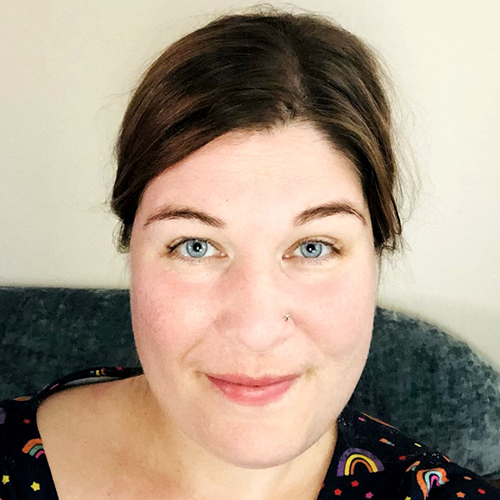
Protecting Breastfeeding by Facilitating Safe, Early Discharge from NICU with Home Nasogastric Tube Feeding

Amanda is a children's nurse, having worked on pediatric wards and in the community supporting children with complex health needs, although over ten years of her nursing career have been in neonatal care, where she is further qualified in specialty (QiS). She trained and volunteered in breastfeeding peer support two years into her nursing career, ultimately sitting the exam to become an IBCLC to ensure that the families within neonatal care had access to an infant feeding specialist familiar with their journey. Amanda has since further specialized in Neonatal Homecare, is a Nurse Practitioner in restrictive lingual frenulum, and has worked as an Infant Feeding Lead for a regional surgical NICU and SCBU, as well as a regional Infant Feeding Advisor to ten neonatal units across a regional network. She has recently been appointed to the Board of Trustees for the Lactation Consultants of Great Britain (LCGB), where she is the Neonatal Lead.
While approximately 80% of UK mothers initiate breastfeeding, by 3-4 months, just 15% of infants receive any breastmilk. Despite the low rates of breastfeeding nationally, in 2021-22, 64% of the NICU graduates in our unit were discharged receiving breastmilk. One possible reason for the higher rates of breastfeeding in this population may be our innovative home NGT feeding programme. In order to hasten discharge from NICU, many mothers feel under pressure to introduce bottles to meet “full oral feeding” criteria. The home nasogastric tube (NGT) feeding programme focusses on the infant’s and family’s needs, without rushing the infant towards full oral feeding, which some are not yet ready for. In this way, all oral feeds can be at the breast, with NGT feeds as required for supplementation. We aim to reduce unnecessary days in hospital, reduce readmissions post-discharge, keep families close to their infants, and embrace the integration of families as essential members of the neonatal care team. This presentation will discuss the practicalities of designing a discharge pathway that optimises parental confidence and ensures competence with home administration of NGT feeds. It will also discuss how to predict which infants are ideal candidates for short-term home NGT feeding, and how to transition to direct breastfeeding. Finally, the presentation will present a case for home NGT feeding as an intervention to protect the mother’s breastfeeding goals, optimise clinical outcomes for infants, and improve the experience of neonatal care for families.
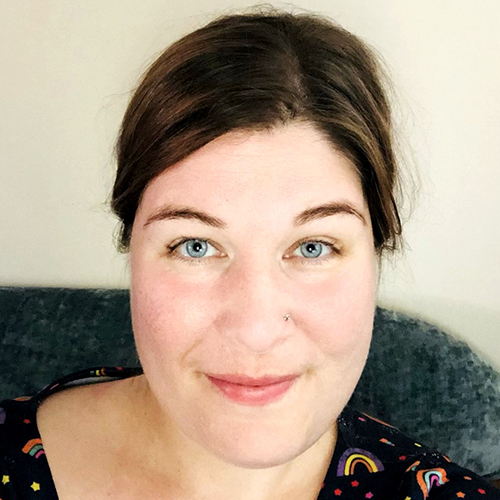
View Details / Enroll

“Zooming Ahead”; Post-NICU Discharge Very-Low-Birth-Weight Infant Follow-up Program Goes Virtual

Karen has worn a number of hats in her nursing career but always comes back to her passion for premature babies. Her background includes NICU nurse, transport nurse and NICU educator, rural nursing, staff development, pediatrics, pediatric intensive care, and community health. For over 20 years Karen has lead Calgary’s specialized “Neonatal Transition Team”, which she will talk about today. Karen has presented locally, nationally, and internationally and has also been co-investigator in several research and quality improvement studies examining outcomes for very low birth weight infants. For nearly 30 years, Karen taught, wrote instructional material, and produced on-line courses for nurses to earn a certificate in neonatal nursing through Mount Royal University. Karen is a past-president of the Canadian Association of Neonatal Nurses and served on this national board for 12 years, and on the international board of the Council for International Neonatal Nurses for 3 years. In 2019, Along with co-author, Tammy Sherrow, Karen published the book “Preemie Care: A guide to navigating the first year with your premature baby”.
Topic: “Zooming Ahead”; Post-NICU Discharge Very-Low-Birth-Weight Infant Follow-up Program Goes Virtual - [View Abstract]
Many preterm infants remain vulnerable following discharge from the neonatal intensive care unit (NICU). Health challenges persist beyond the NICU including respiratory illness, breastfeeding progression, bottle feeding incoordination, behavior and development issues, impaired growth, infrequent stooling, and gastroesophageal reflux. Preterm infants are up to two times more likely than full term infants to be hospitalized in the first year of life. Parents are challenged to transition their premature baby home and to keep them home!
Community-based, specialized follow-up services following NICU discharge have a powerful impact. The Neonatal Transition Team in Calgary, Alberta, Canada provides post-NICU follow-up for very-low-birth-weight infants and their families. The team consists of community health registered nurses with advanced skill in premature infant outcomes, feeding and neurodevelopmental assessment, and a consultation partnership with nutritional and feeding specialists. While home visits have been the backbone of this service, the team questioned the feasibility and acceptance of virtual care and completed a three month quality improvement pilot. This virtual care pilot demonstrated optimization of health-care resources by providing safe, high-quality care at a reduced operational cost. The pilot was instrumental in the team’s management during the SARS-COVID-19 pandemic. Virtual care has been fully operationalized into the service delivery model and expanded to serve other newborns with feeding or growth challenges.
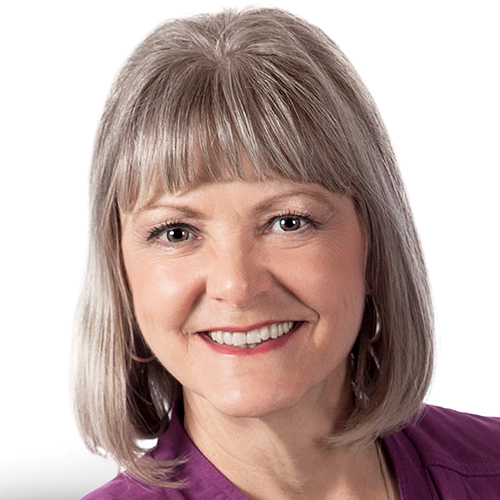
View Details / Enroll




